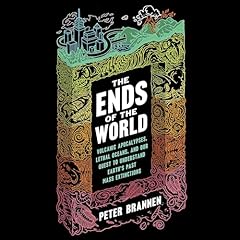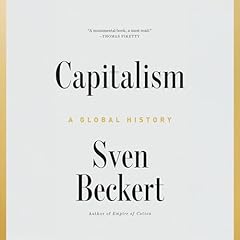
Extinction
A Very Short Introduction
No se pudo agregar al carrito
Add to Cart failed.
Error al Agregar a Lista de Deseos.
Error al eliminar de la lista de deseos.
Error al añadir a tu biblioteca
Error al seguir el podcast
Error al dejar de seguir el podcast
 Exclusivo para miembros Prime: ¿Nuevo en Audible? Obtén 2 audiolibros gratis con tu prueba.
Exclusivo para miembros Prime: ¿Nuevo en Audible? Obtén 2 audiolibros gratis con tu prueba.Compra ahora por $15.75
-
Narrado por:
-
Jonathan Cowley
-
De:
-
Paul B. Wignall
Most people are familiar with the dodo and the dinosaur, but extinction has occurred throughout the history of life, with the result that nearly all the species that have ever existed are now extinct. Today, species are disappearing at an ever increasing rate, while past losses have occurred during several great crises. Issues such as habitat destruction, conservation, climate change, and, during major crises, volacanism and meteorite impact, can all contribute towards the demise of a group.
In this Very Short Introduction, Paul B. Wignall looks at the causes and nature of extinctions, past and present, and the factors that can make a species vulnerable. Summarizing what we know about all of the major and minor extinction events, he examines some of the greatest debates in modern science, such as the relative role of climate and humans in the death of the Pleistocene megafauna, including mammoths and giant ground sloths, and the roles that global warming, ocean acidification, and deforestation are playing in present-day extinctions.
©2019 Paul B. Wignall (P)2019 TantorLos oyentes también disfrutaron:




















Las personas que vieron esto también vieron:



A fantastic primer!
Se ha producido un error. Vuelve a intentarlo dentro de unos minutos.
It has a lot of information in an engaging presentation.
I have the printed book, so I could follow the Audible version.
The many illustrations in the book are a helpful aspect.
The narrator, mr. Jonathan Cowley, has a pleasant voice.
My thanks to all involved, JK
VERY INTERESTING
Se ha producido un error. Vuelve a intentarlo dentro de unos minutos.
I enjoyed the summaries of the mass extinction events, however perhaps the most engaging part of the book was when it detailed Holocene mass extinction, and placed it in the context of patterns of biodiversity.
It's a short book, but covers a lot, without being to dense. If you want more on this subject, I would recommend anything by the same author, Peter Ward or Michael Benton.
A short brief summary of mass extinctions
Se ha producido un error. Vuelve a intentarlo dentro de unos minutos.


